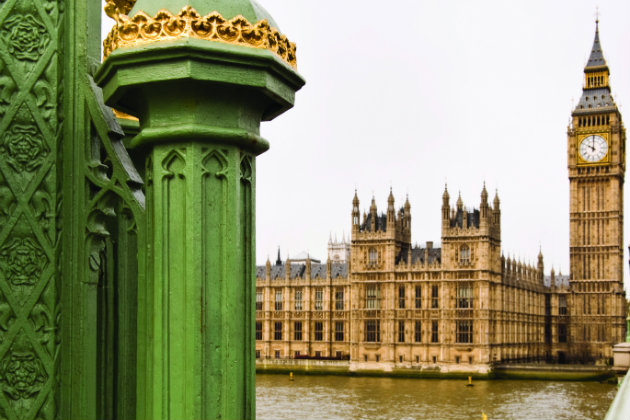Exclusive: Government proposes to tighten firearms licensing
The firearms licensing procedure has long been an area of concern for shooting groups. Here's how to have your say on the future of firearms licensing.

The Home Office has today contacted Shooting Times with news of a consultation on statutory guidance for the police issuing firearms certificates. The Government department has signed an agreement with the British Medical Association (BMA) to improve co-operation between the police and GPs. The independent police inspectorate, HMICFRS, previously found there was inconsistent police licensing practice across the country and that medical information was not being shared for firearms applications, creating a potential safety risk. New draft statutory guidance, which includes the requirement for police to check medical records, will bring more clarity to the process, with the aim of ensuring licences are only issued to suitable applicants.
The Home Office has drafted the guidance following discussions with the police, GPs and shooting organisations, who agreed that greater consistency was needed. It is now seeking further feedback on the draft guidance and says: “This consultation seeks public views on how best to ensure that the police carry out their firearms licensing functions in an appropriate manner, with the introduction of statutory guidance. The government will conduct a consultation with the National Police Chiefs Council and the chief constable of Police Scotland, as required by the legislation, alongside this consultation.
To have your say, and give your views to the Government, complete the online response form here. It is something all responsible shooters should do to safeguard the future of their sport.

Nick Hurd, Minister for Policing and the Fire Service with Prince Charles
Exclusive comment piece for Shooting Times – by Nick Hurd, Minister for Policing and the Fire Service
Today the Home Office begins consulting on new statutory guidance for the police on their responsibilities for considering firearms and shotgun licence applications.
We have listened to the police, medical practitioners and shooting groups and it is clear that we all agree that there is a need for greater consistency in how these applications are decided.
This will help us ensure the highest standards of public safety are met.
The draft guidance we are proposing includes a requirement for the police to obtain medical information from an applicant’s GP about their medical fitness to hold a firearms licence before it is issued or renewed.
Firearms must only be in the hands of safe, responsible owners and our proposals are aimed at ensuring the medical suitability of firearms applicants has been fully considered.
I know that firearms licence holders will be concerned about red tape and added costs. But they also know better than anyone of the importance of gun safety.
I held several constructive meetings with shooting organisations and I am very grateful for their important contribution to the development of our thinking.
I have listened carefully to the concerns they raised, in particular their wish to see greater consistency in how police forces handle the medical arrangements for firearms.
This statutory guidance will address this matter head on and leave little doubt about what the police must do for every licence application they receive.
In addition, it was important for me to minimise the burden on shooters and I want to reassure you that the draft statutory guidance specifies that the police must write to GPs to request the information, rather than the applicant being obliged to provide it at the time of application.
I see this as a necessary step for the police to make a fully informed decision on each firearms application. I am sure that all shooters will agree that this is a very serious responsibility which can have direct implications for the wider public.
There has also been a great deal of discussion about any fee which may be charged by GPs to provide basic medical information to the police. It is right that the fee must ultimately be charged to the applicant and not the taxpayer, but I am determined to keep costs as low as possible.
Finally, we have been working with the medical profession to encourage doctors to place a marker on a patient’s records when they become a firearms licence holder, so that the GP is reminded to notify the police if a firearms licence holder develops a relevant medical condition. Along with the Department of Health and Social Care, we are looking into how this flagging system can be supported by a national IT system to make the use of such markers more consistent.
These measures have the potential deliver longer term gains for applicants, such as moving from a five year licence to a 10 year licence.
I really do hope that shooting organisations will regard these proposals as beneficial. They fundamentally make the firearms licensing system fairer, more consistent, and above all, safer.
We have some of the toughest firearms controls in the world and we must do everything we can to ensure it stays this way.
We need to bring greater consistency to how firearms licences are issued and I am confident that the police, GPs and shooting groups agree. We have listened to their concerns and are proposing a way forward that tightens up the system without creating unreasonable demands.
The bottom line is public safety. Firearms must only be in the hands of the most safe and responsible people. This is not something we are prepared to compromise on.
Shooting Times will be running a full report on the Home Office consultation next week, in the issue dated 31st July 2019.








